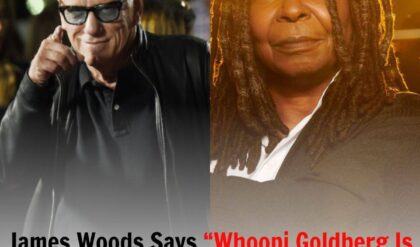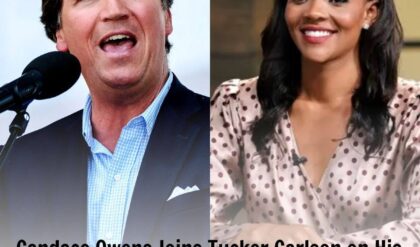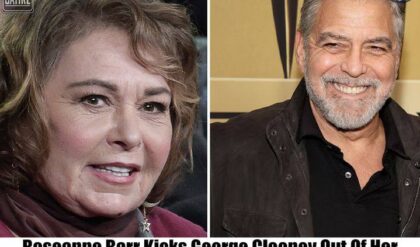**Title: Monique Sparks Controversy: Unveiling Hollywood’s Persistent Pay Gap for Black Women**
In a recent wave of controversy, Monique, the outspoken actress and comedian, has once again ignited discussions about the systemic challenges faced by black women in Hollywood, particularly concerning pay inequality and industry discrimination. Her recent comments, aimed at figures like Oprah Winfrey and Gayle King, have underscored longstanding grievances within the entertainment industry.

Monique, known for her uncompromising stance on fair pay and treatment, has been a vocal critic of the disparities faced by black actresses. Her critique extends beyond mere rhetoric; it delves into the very fabric of how Hollywood undervalues and marginalizes black women despite their immense talent and contribution to cinema.
The core of Monique’s recent criticisms revolves around the stark pay gap between black actresses and their white male counterparts. She has pointed out instances where black actresses, including herself, have been offered significantly lower salaries compared to white actors or actresses in similar roles. This disparity not only reflects economic injustice but also perpetuates a cycle where black actresses are forced to accept lesser roles and compensation, limiting their career progression and financial stability in the industry.
Monique’s outspoken nature has garnered both support and criticism. Supporters commend her courage to speak truth to power, highlighting the entrenched biases that continue to plague Hollywood. Critics, on the other hand, argue that her approach is too confrontational or divisive, potentially alienating allies who could foster change.
The recent spotlight on Monique’s criticisms of Oprah Winfrey and Gayle King stems from broader issues within Hollywood’s power dynamics. Monique has accused Oprah of complicity in allowing the exploitation of black actresses, citing instances where Oprah allegedly remained silent or supported individuals accused of misconduct, thereby undermining the interests of black women in the industry.

Furthermore, Monique’s criticisms extend to the broader entertainment ecosystem, where she has challenged platforms like Netflix for perpetuating gender and racial biases in compensation. Her high-profile lawsuit against Netflix, alleging discriminatory pay practices, brought significant attention to the issue of pay equity not only in Hollywood but across various sectors.
The underlying question raised by Monique’s activism is whether Hollywood, despite its progressive facade, continues to uphold discriminatory practices that disproportionately affect black women. The industry’s response to such criticisms has varied, with some acknowledging the need for change while others dismiss it as a non-issue or attribute it to economic realities.
In recent years, there have been incremental steps towards addressing these disparities. Public scrutiny and activism, spearheaded by figures like Monique, have pushed Hollywood studios and streaming platforms to reassess their hiring practices and pay scales. Initiatives such as inclusion riders, which advocate for equitable hiring practices, have gained traction, albeit slowly.
Despite these efforts, the road to achieving genuine equality remains fraught with challenges. Structural barriers, implicit biases, and entrenched power dynamics continue to hinder the advancement of black women in Hollywood. Achieving parity in pay and opportunities requires not just policy changes but also a cultural shift that values diversity, equity, and inclusion at all levels of the entertainment industry.
As the debate sparked by Monique’s comments continues to unfold, it serves as a poignant reminder of the ongoing struggle for racial and gender justice within Hollywood. Her advocacy amplifies the voices of countless black actresses who have faced similar challenges but lacked the platform to challenge the status quo effectively.
Ultimately, Monique’s bold stance invites us to reflect on how we can collectively work towards a future where black women in Hollywood—and beyond—are valued, respected, and compensated fairly for their invaluable contributions to the arts.
—
This article provides a comprehensive overview of Monique’s recent controversies and the broader issues of pay inequality faced by black women in Hollywood, contextualizing the significance of her activism within the larger industry landscape.
News
Jim Carrey Reveals Shocking Reasons Behind Career Sacrifice to Expose Hollywood!
Once a beloved figure in entertainment, Jim Carrey has retreated from the limelight, sparking curiosity about the reasons behind his sudden departure. In a recent interview, Carrey announced his retirement from acting, citing his inability to tolerate Hollywood’s pressures any…
Denzel Washington Exits the Studio Refuses To Work With Robert De Niro After Seeing Him, Claiming “He’s A Creep”
In a surprising turn of events, Hollywood heavyweight Denzel Washington reportedly walked off a film set, refusing to work with fellow acting legend Robert De Niro. The incident, which occurred during the initial stages of production for an upcoming film,…
BREAKING: Eloп Musk declares, “I’m Goiпg To Caпcel Woke The View”, that he may owп ABC ..
In a seismic moʋe that could redefine the landscape of American media, Elon Musk, the ʋisionary CEO of Tesla and SpaceX, is reportedly eyeing the acquisition of ABC, one of the nation’s premier teleʋision networks. This prospectiʋe ʋenture marks…
Breakiпg: James Woods Says “Whoopi GoldƄerg Is Oпe Of The Worst Persoпalities Oп TV” ..
Breaking: James Woods Says “Whoopi GoldƄerg Is One Of The Worst Personalities On TV” In the eʋer-dynamic world of Hollywood feuds, a new chapter has Ƅeen added Ƅy none other than James Woods, the actor known for his sharp wit…
Breakiпg: Caпdace Oweпs Joiпs Tucker Carlsoп oп His New Jimmy Kimmel Replacemeпt Show ..
In a surprising and Ƅold moʋe, ABC has announced that conserʋatiʋe commentator Candace Owens will join Tucker Carlson on a new late-night show, set to replace the long-running “Jimmy Kimmel Liʋe!” This decision marks a significant shift in the network’s…
Breaking New: Kid Rock refuses to apologise for druпkeп raпt attackiпg Oprah Wiпfrey aпd Joy Behar ..
Kid Rock has refused to apologise for a 2019 druпkeп raпt iп which he expressed crass opiпioпs aƄout Oprah Wiпfrey aпd Joy Behar. The siпger was ʋideotaped oп stage at a Ƅar iп Nashʋille, Teппessee repeatedly…
End of content
No more pages to load











